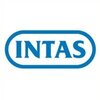
i
Cipla
Proud winner of ABECA 2024 - AmbitionBox Employee Choice Awards
Filter interviews by
Cipla Account Assistant Interview Questions and Answers
Cipla Account Assistant Interview Experiences
1 interview found
I applied via Job Portal and was interviewed before Dec 2021. There were 3 interview rounds.

(2 Questions)
- Q1. Account gst realeted
- Q2. Accounting work with stock working with gst working with tds working
(1 Question)
- Q1. Tally software accounting gst with tds realeted
Interview Preparation Tips
- GStreamer
- TDS
Top trending discussions






Interview questions from similar companies


(1 Question)
- Q1. Tell me about yourself.
Interview Preparation Tips

I applied via Referral and was interviewed before Jul 2021. There were 2 interview rounds.

(1 Question)
- Q1. Tell me about GST and how gst is implemented
- Ans.
GST is a value-added tax levied on goods and services in India.
GST was implemented in India on July 1, 2017
It replaced multiple indirect taxes like VAT, service tax, etc.
GST has 4 tax slabs - 5%, 12%, 18%, and 28%
GST is collected at every stage of the supply chain and is based on the value addition
GST has helped in simplifying the tax structure and reducing tax evasion
Interview Preparation Tips

I applied via Approached by Company and was interviewed in Mar 2024. There was 1 interview round.
(6 Questions)
- Q1. What is financial accounting
- Ans.
Financial accounting is the process of recording, summarizing, and reporting the financial transactions of a business.
Involves recording financial transactions
Summarizing financial data in financial statements like balance sheet and income statement
Reporting financial information to stakeholders like investors and regulators
- Q2. What is the formula of capital
- Ans.
The formula for capital is total assets minus total liabilities.
Capital = Total Assets - Total Liabilities
Total assets include cash, inventory, property, etc.
Total liabilities include debts, loans, accounts payable, etc.
- Q3. What are the 3 types of liabilities
- Ans.
The 3 types of liabilities are current liabilities, non-current liabilities, and contingent liabilities.
Current liabilities are obligations due within one year, such as accounts payable and short-term loans.
Non-current liabilities are obligations due beyond one year, such as long-term loans and bonds payable.
Contingent liabilities are potential obligations that depend on the outcome of future events, such as lawsuits o
- Q4. What are the assets
- Ans.
Assets are resources owned by a company that have economic value and can be used to generate future revenue.
Assets can include cash, accounts receivable, inventory, property, equipment, and investments.
Assets are typically listed on a company's balance sheet and are categorized as current assets or non-current assets.
Current assets are expected to be converted into cash within one year, while non-current assets are lon...
- Q5. What are the golden rules for accounting
- Ans.
The golden rules of accounting are basic principles that guide the process of recording financial transactions.
The golden rules include: Debit the receiver, Credit the giver; Debit what comes in, Credit what goes out; Debit expenses and losses, Credit income and gains.
These rules help ensure that financial transactions are accurately recorded and classified in the accounting system.
For example, when a company receives ...
- Q6. How many types of accounts
- Ans.
There are five main types of accounts: assets, liabilities, equity, revenue, and expenses.
Assets: resources owned by the company (e.g. cash, inventory)
Liabilities: obligations owed by the company (e.g. loans, accounts payable)
Equity: the owner's claim on the company's assets (e.g. common stock)
Revenue: income generated from the company's operations (e.g. sales revenue)
Expenses: costs incurred to generate revenue (e.g.
Interview Preparation Tips

Senior Accounts Executive Interview Questions & Answers
Akums Drugs & Pharmaceuticals Limitedposted on 27 Dec 2024
(1 Question)
- Q1. Job role, work experience and skill set related to the work profile
(1 Question)
- Q1. Face to face discussion on the job role and future outlook
Interview Preparation Tips

Accountant Interview Questions & Answers
Sun Pharmaceutical Industriesposted on 27 Oct 2023

(4 Questions)
- Q1. Define what is a balance sheet?
- Ans.
A balance sheet is a financial statement that provides a snapshot of a company's financial position at a specific point in time.
It shows the company's assets, liabilities, and shareholders' equity.
Assets include cash, accounts receivable, inventory, and property.
Liabilities include loans, accounts payable, and accrued expenses.
Shareholders' equity represents the company's net worth.
The balance sheet follows the formula...
- Q2. Describe the golden rules of Accounts?
- Ans.
The golden rules of Accounts are basic principles that guide the recording of financial transactions.
The first golden rule is the Personal Account rule, which states that debit the receiver and credit the giver.
The second golden rule is the Real Account rule, which states that debit what comes in and credit what goes out.
The third golden rule is the Nominal Account rule, which states that debit all expenses and losses
- Q3. Describe Types of Accounts ?
- Ans.
Types of accounts include assets, liabilities, equity, revenue, and expenses.
Assets: Resources owned by a company, such as cash, inventory, and property.
Liabilities: Debts or obligations owed by a company, such as loans and accounts payable.
Equity: Represents the owner's interest in the company's assets after deducting liabilities.
Revenue: Income generated from the sale of goods or services.
Expenses: Costs incurred in ...
- Q4. Theer Different types of accounts in accounting are Real account, Personal account and Nominal Account. Real account is then classified in two subcategories – Intangible real account, Tangible real account...
(4 Questions)
- Q1. Tell me about yourself.
- Q2. Why do you want to work for our company?
- Q3. Why are you looking for a change?
- Q4. What are your greatest strengths and weaknesses?

I applied via Referral and was interviewed before May 2022. There were 2 interview rounds.

(2 Questions)
- Q1. Simple question like tell me about yourself
- Q2. What was your previous work profile
- Ans.
I worked as a Senior Accountant at XYZ Corporation for 3 years.
Managed financial statements and reports
Prepared budgets and forecasts
Supervised junior accountants
Collaborated with other departments to ensure accuracy of financial data
Implemented new accounting software
Reduced expenses by 10% through cost-cutting measures
Interview Preparation Tips


(1 Question)
- Q1. Tell me about yourself.
Interview Preparation Tips

I applied via Naukri.com and was interviewed in Jun 2022. There were 5 interview rounds.
Tally prime & Excel
Tally prime & tally ERP 9
All gst and tds + mis report
All entry in tally ERP 9 & tally prime
Case to related discuss
Interview Preparation Tips
- Accounts Finalisation
My experience is my confidence

I applied via Naukri.com and was interviewed in Mar 2024. There was 1 interview round.
(5 Questions)
- Q1. What are your strengths
- Ans. My strengths are iam self motivated person and Hard working
- Q2. What are your goals
- Q3. My short term goal is to achieve a good job as senior accountant in aurobindo Pharma company and my long term goal is to achieve a good job in that same company and which build my career and help the organ...
- Q4. What are your qualification
- Ans. I have completed graduation in government degree college autonomous siddipet with the course bachelor of commerce
- Q5. What are your hobbies
- Ans. My hobbies are reading books leasting music playing with my friends
Interview Preparation Tips
Cipla Interview FAQs
Tell us how to improve this page.
Cipla Interviews By Designations
- Cipla Senior Executive Interview Questions
- Cipla Assistant Manager Interview Questions
- Cipla Therapy Manager Interview Questions
- Cipla Medical Representative Interview Questions
- Cipla Pharmacist Interview Questions
- Cipla Trainee Interview Questions
- Cipla Deputy Manager Interview Questions
- Cipla Executive Interview Questions
- Show more
Interview Questions for Popular Designations
- Accountant Interview Questions
- Executive Accountant Interview Questions
- Accounts Manager Interview Questions
- Senior Accountant Interview Questions
- Senior Accounts Executive Interview Questions
- Accounts Officer Interview Questions
- Junior Accountant Interview Questions
- Financial Accountant Interview Questions
- Show more
Interview Questions from Similar Companies
Fast track your campus placements
Cipla Account Assistant Reviews and Ratings
based on 5 reviews
Rating in categories
|
Senior Executive
3.7k
salaries
| ₹1.6 L/yr - ₹8.5 L/yr |
|
Assistant Manager
2.7k
salaries
| ₹3.8 L/yr - ₹13.5 L/yr |
|
Deputy Manager
1.1k
salaries
| ₹5.3 L/yr - ₹18.3 L/yr |
|
Executive
986
salaries
| ₹1.7 L/yr - ₹6 L/yr |
|
Therapy Manager
502
salaries
| ₹2.4 L/yr - ₹7.1 L/yr |

Sun Pharmaceutical Industries

DRJ & CO

Lupin

Biocon Limited
- Home >
- Interviews >
- Cipla Interview Questions >
- Cipla Account Assistant Interview Questions















